Weekly Writing Summary For The Week Ending 08/14/2025
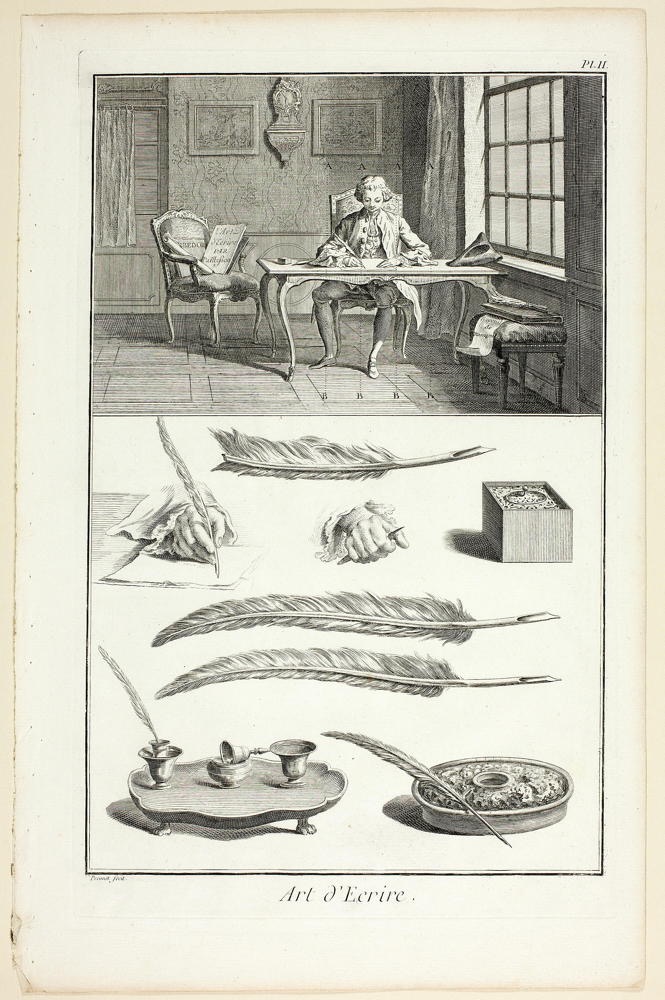
Benoît-Louis Prévost: Art of Writing, from Encyclopédie (1760)
For Your Interest
I this week made a radical change to my long-established Weekly Writing Summary template. I'd long felt as though I wasn't so much offering a writing summary as an index with which my readers could access the original stories. The summaries, such as they were, didn't summarize very much. This week, while traveling outside my usual box, I experimented with AI, to see if I could appreciate its summarizing ability. I asked it (Grammerly) to summarize one of my stories. I received, after about a second of processing, a crisp and wholly acceptable summary of the story. I was blown away.
I decided to experiment with this facility, wrestling only slightly with the ethical implications of this decision. I have been using Grammerly, a popular artificial intelligence app, by which I mean a large language-informed automated assistant, to check my stories grammer and spelling since March 26, 2023. According to a report I received from Grammerly this week, it's checked 8,350,274 words for me in that time. I approve a little less than half the suggestions it provides. It has no sense of rhythm and prefers trivial constructions, but it does catch many of my more eggregious misspellings and understands the otherwise intractable comma use rules. My recent experience with a human copyeditor convinces me that it will never replace human sensitivity.
That said, might creating a summary qualify as a trivial-enough chore for me to automate? As usual, even the suggestions it created required copyediting, andf some of each summary needed correcting, but overall, I again found the results acceptable, so this week, I introduce the beta version of a slightly different Weekly Writing Summary, this one containing actual summaries of each of the stories. (I considered including a summary of the summaries, but feared I might fall down a deep well of regression, so I chose not to.)
I am interested in your impression. Does this form seem like an improvement or a degradation? Do I seem to have compromised my integrity in your opinion by inviting AI into this otherwise creatinve space? Have I just demonstrated unforgivable laziness? Progress seems to result from roaming around, trying different things. I'm trying to improve my product here and will appreciate any advice you might feel moved to offer on this subject. Thank yoiu for your interest!
——
Weekly Writing Summary
Unaiming
"I will not have heard the news because I wouldn't have been listening for it."
This FollowingChapters Story found me preparing to disengage, Unaiming for a change.
The story highlights the importance of disengaging from overwhelming responsibilities and routines. The Muse and I find our lives consumed by obligations, leading to a cycle of addiction to productivity. We recognize that losing oneself in purpose can create a sense of hollowness that only purposelessness can fill. Emphasizing minimalism, I plan to leave much behind, focusing on experiences rather than possessions. Traveling with a light touch on purpose allows us to adapt to changing destinations without becoming slaves to schedules. This approach encourages embracing uncertainty and finding renewal in moments of disengagement.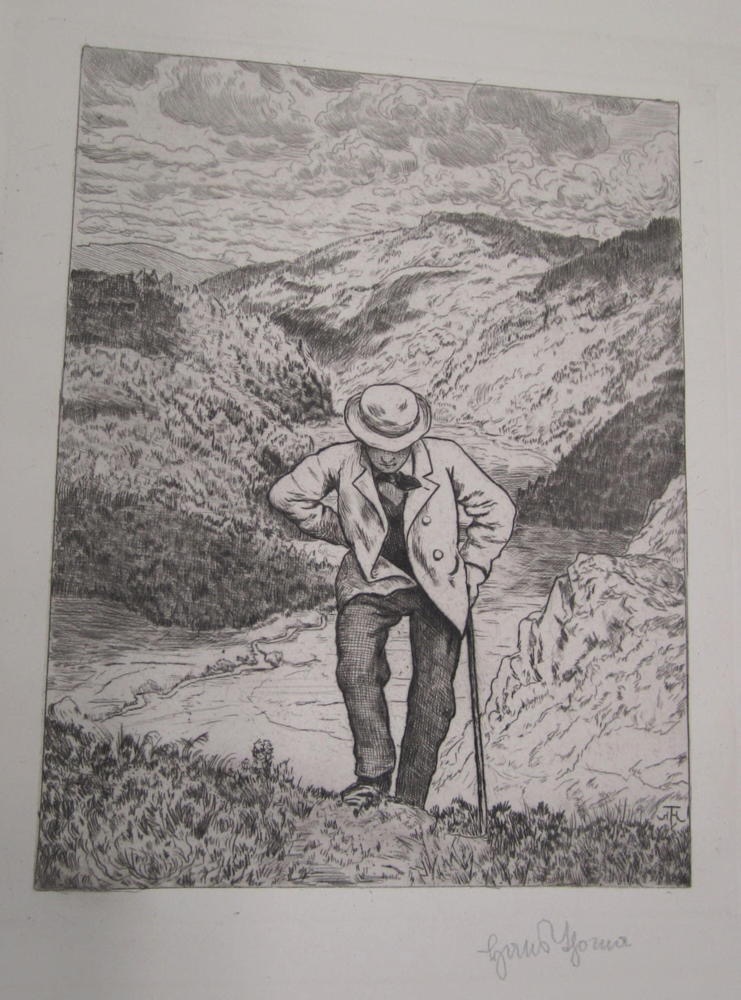
Hans Thoma: The Wanderer [Der Wanderer] (1903)
—
On Liberty
"…to never be the same again. Period."
This FollowingChapters Story found me suspended from my usual grounding responsibilities, On_Liberty for a change.
I wake up On_Liberty, a break from regular duties, allowing me to explore new interests. While others might squander such freedom, I reflect on the importance of using this time for meaningful experiences rather than trivial distractions. Driving through scenic landscapes, I experience a sense of liberation and discover unexpected delights, like tomato confit. This journey highlights how temporary freedom can lead to personal growth and a deeper understanding of oneself. Ultimately, I realized that this liberty is not just an escape but an opportunity to reshape my life upon returning to responsibilities.
Irving S. Underhill (possibly): Statue of Liberty, New York (c. 1928)
—
DerelictBarns
"…as our history continues disappearing around us."
This FollowingChapters Story finds me toodling across the plains seeking DerelictBarns.
I express concern over the decline of DerelictBarns, which symbolize a rich agricultural history that future generations may forget. Once built with pride and craftsmanship, these barns were essential to farming life, providing shelter for animals and serving as a hub for community activities. Today, modern farming relies on machines that require little to no human effort, leading to the disrepair and demolition of these once-majestic structures. As fewer farmers see value in maintaining old barns, I mourn their loss and reflect on the beauty and significance they held, feeling grateful for having witnessed their fading legacy.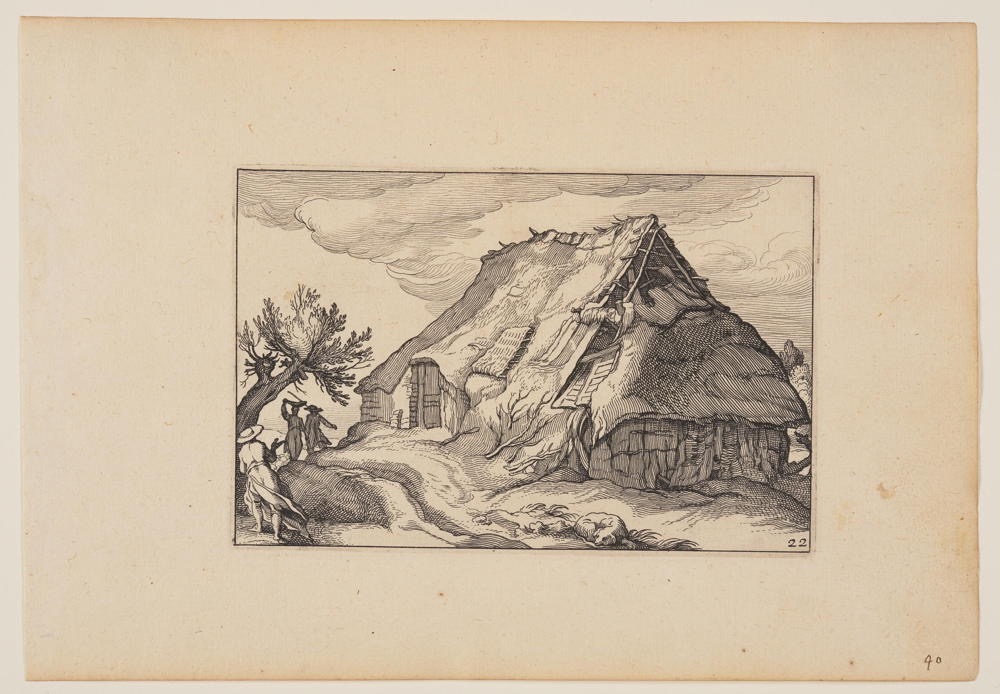
Claes Jansz Visscher: A Barn, from Landscapes [Verscheyden aerdige Lanthuysen…] (1620)
—
HistoryLesson
"…The very best portrait of our American Dream, and one hell of a HistoryLesson."
This FollowingChapters Story, HistoryLesson, finds me dreaming the American Dream and discovering the underlying American reality.
The American West is steeped in myth, yet its reality reveals deep struggles, especially poverty. Small towns often fall short of idyllic dreams, with many residents facing unfulfilled aspirations and a stagnant economy. Desperate settlers, driven by the hope of a better life, often encountered harsh realities that left them vulnerable to exploitation. While some found success, many ended up as laborers, far from their original dreams. Towns built during optimistic times now show signs of decay, with empty buildings and little industry to support the community. Despite these challenges, the allure of the American Dream persists, suggesting that the journey, even one that leads to disappointment, still holds value. The stark contrast between hope and reality paints a complex picture of life in these towns, reflecting both past and future aspirations.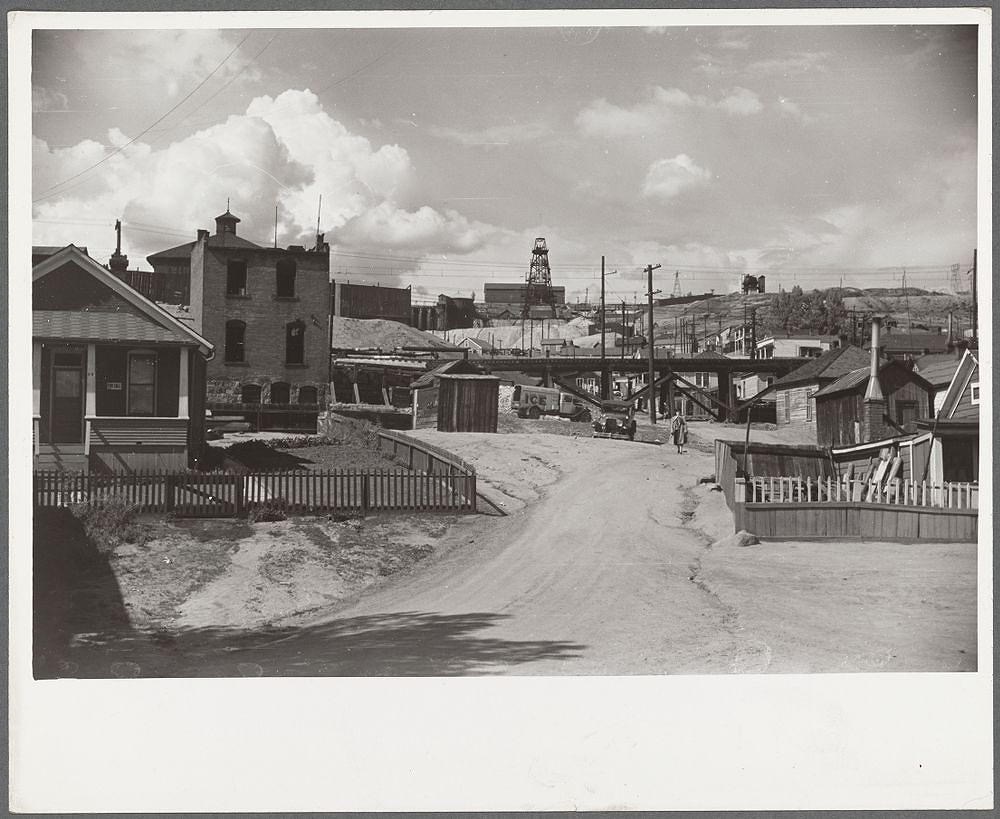
Arthur Rothstein: Street in Butte, Montana (1939) - Farm Security Administration Photographs - The Miriam and Ira D. Wallach Division of Art, Prints and Photographs: Photography Collection, The New York Public Library. "Street in Butte, Montana," The New York Public Library Digital Collections. https://digitalcollections.nypl.org/items/32c50bd0-059b-0138-0ab0-4f25bfb71a96
—
Roading
"Life continues even when the protagonists are off Roading."
This FollowingChapters Story finds me Roading, a lifestyle with which I once was terribly familiar.
Traveling creates a different set of challenges than staying at home, disrupting routines and personal balance. I reflect on my past as a frequent traveler, ultimately choosing to value the comforts of home over the allure of road life. I express how being away makes home feel even more precious, and even in rare moments of travel, instinctive habits resurface, demonstrating my adaptability. While acknowledging the frustrations of travel, I also appreciate how certain experiences, such as finding good food or understanding road protocols, become second nature. Ultimately, the story captures the bittersweet nature of travel, balancing nostalgia with a commitment to home life.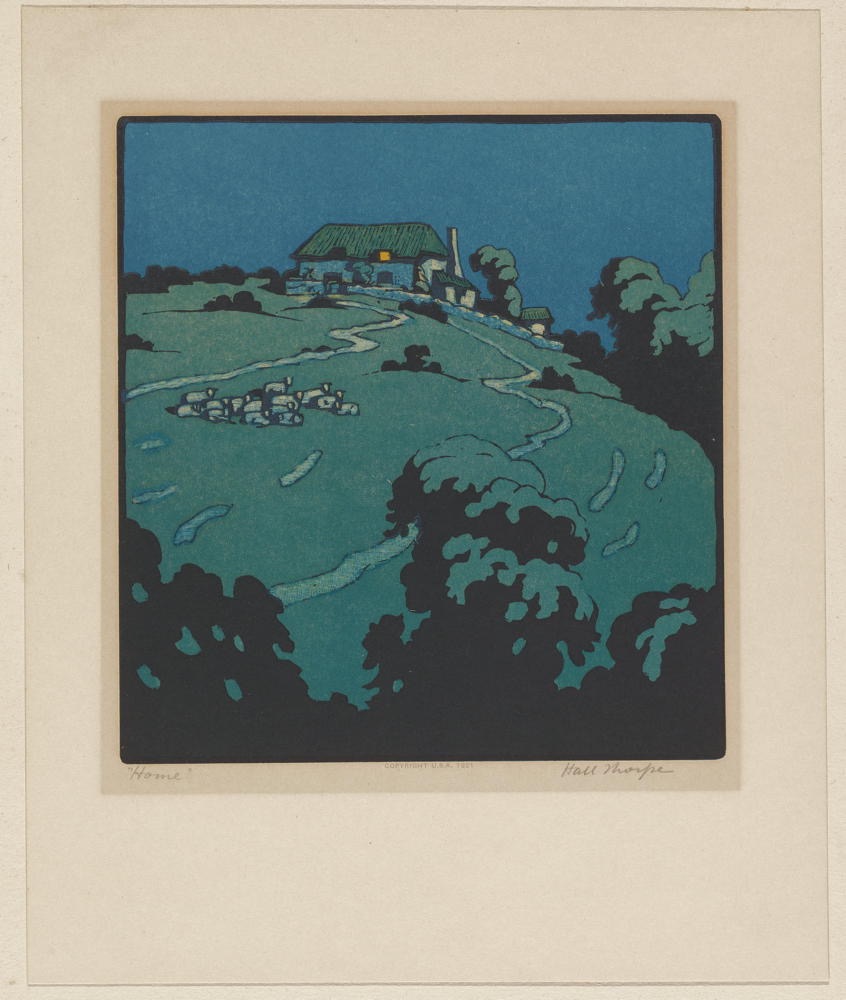
Hall Thorpe: Home (c. 1919)
—
Rx
“Imagine how fortunate I feel to have been able to barter for a few of those…"
This FollowingChapters Story, Rx, finds me misplacing something I'm supposed to depend on, channeling my inner Mr. Magoo.
The story showcases the value of unplanned experiences in travel, suggesting that some of the most memorable stories come from unexpected turns or mistakes. It reflects on how a single slight deviation in plans can lead to significantly different outcomes, hinting that detailed planning often serves merely as a distraction from the inevitable unpredictability of journeys. An anecdote about forgetting toiletries highlights the complexities of managing prescriptions while traveling, underscoring the frustrations of navigating pharmacy policies and health insurance. The narrative emphasizes the unpredictable nature of life, particularly in healthcare, and my acceptance of these challenges, ultimately highlighting the importance of adaptability and resilience in the face of such disruptions.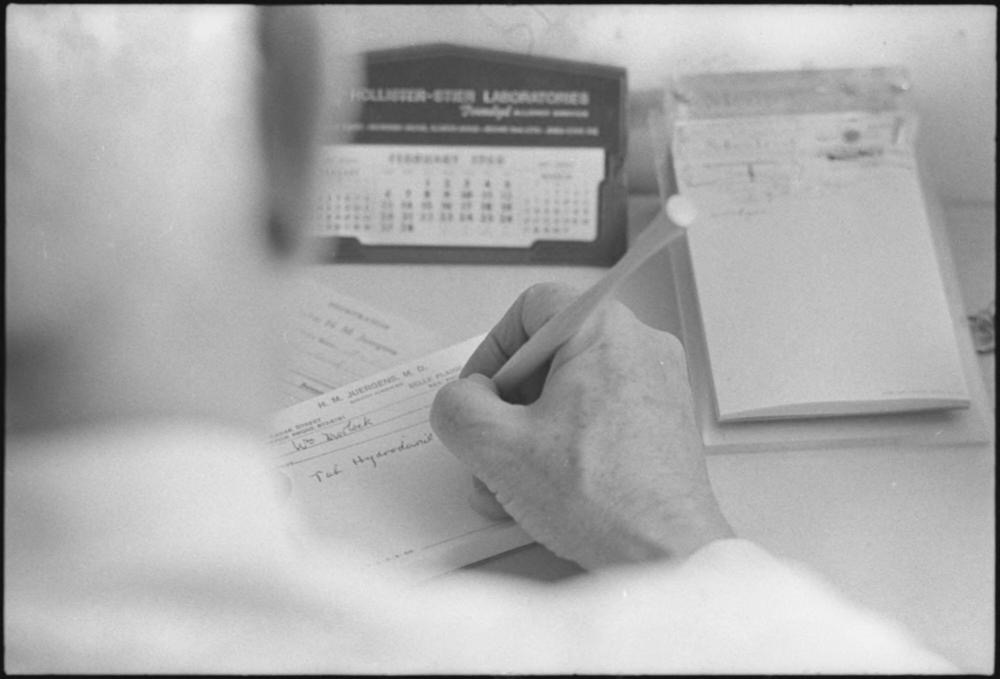
Gordon W. Gahan: Untitled [Dr. Herman M. Juergens writing prescription} (1965-1968)
—
Final Words
This writing week seemed consequential. I broke long-standing patterns and painted outside well-established lines. The Muse and I were traveling, "Roading", toodling, visiting unfamiliar territory, which never fails to encourage me. There's something about the unknown, when combined with learning, that renders days more interesting. I had been defending boundaries before I began exploring different territories. Vestigial abilities revisited.
I began this excursion by Unaiming myself, thinking that focus and purpose might have become overrated. I then reflected On_Liberty, what it might be, and what it might have never become. I appreciated the DerelictBarns we passed as we drove and fussed about where future generations might receive the sort of inspirations only tumbledown barns provide. I received and passed on a HistoryLesson, one to counter some of the myth we Americans seem so dependent upon. I resurrected a few of my long-forgotten travel ethics and practices in Roading. I ended this writing week by channeling my inner Mr. Magoo in Rx, making mistakes and recovering from them.
Thank you for following along!
©2025 by David A. Schmaltz - all rights reserved


